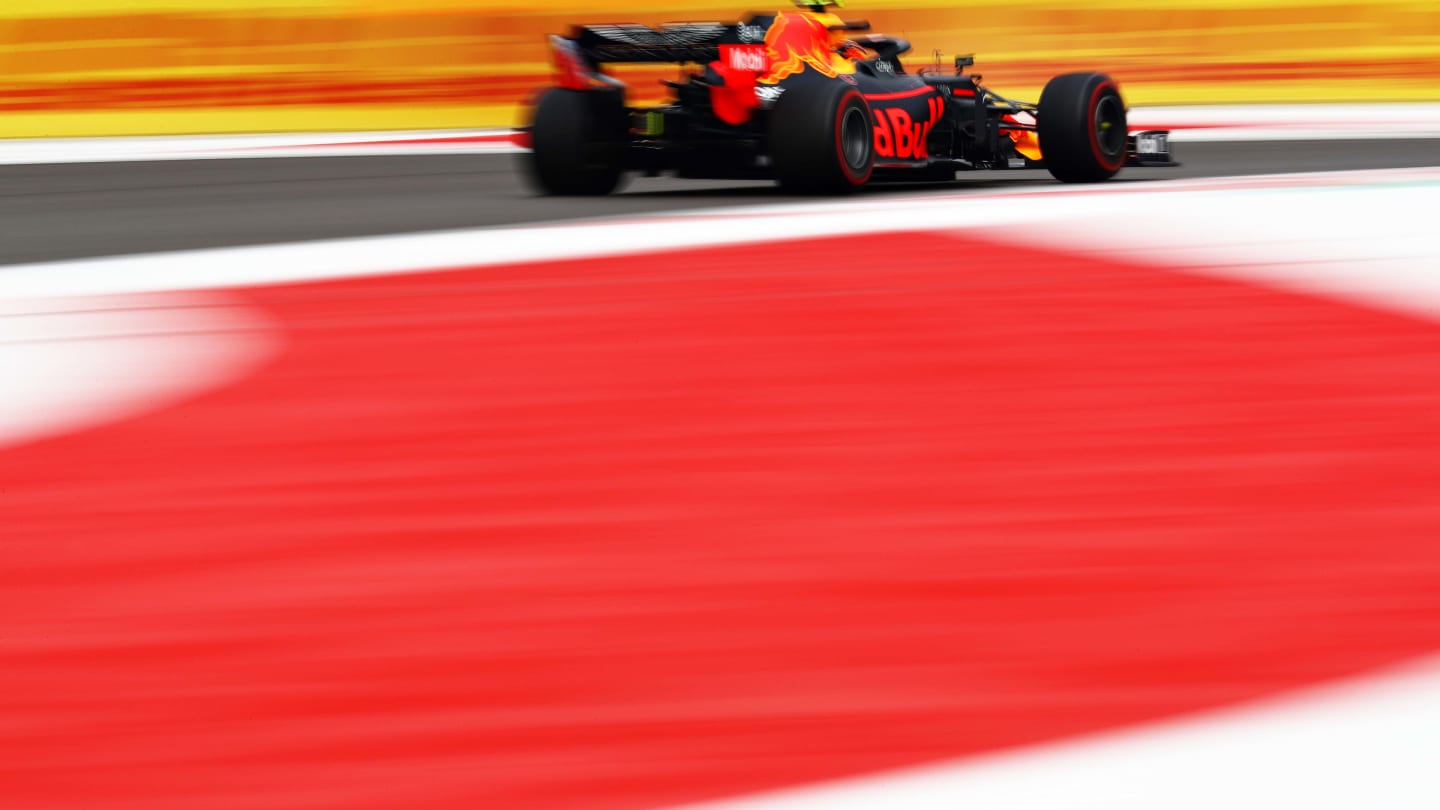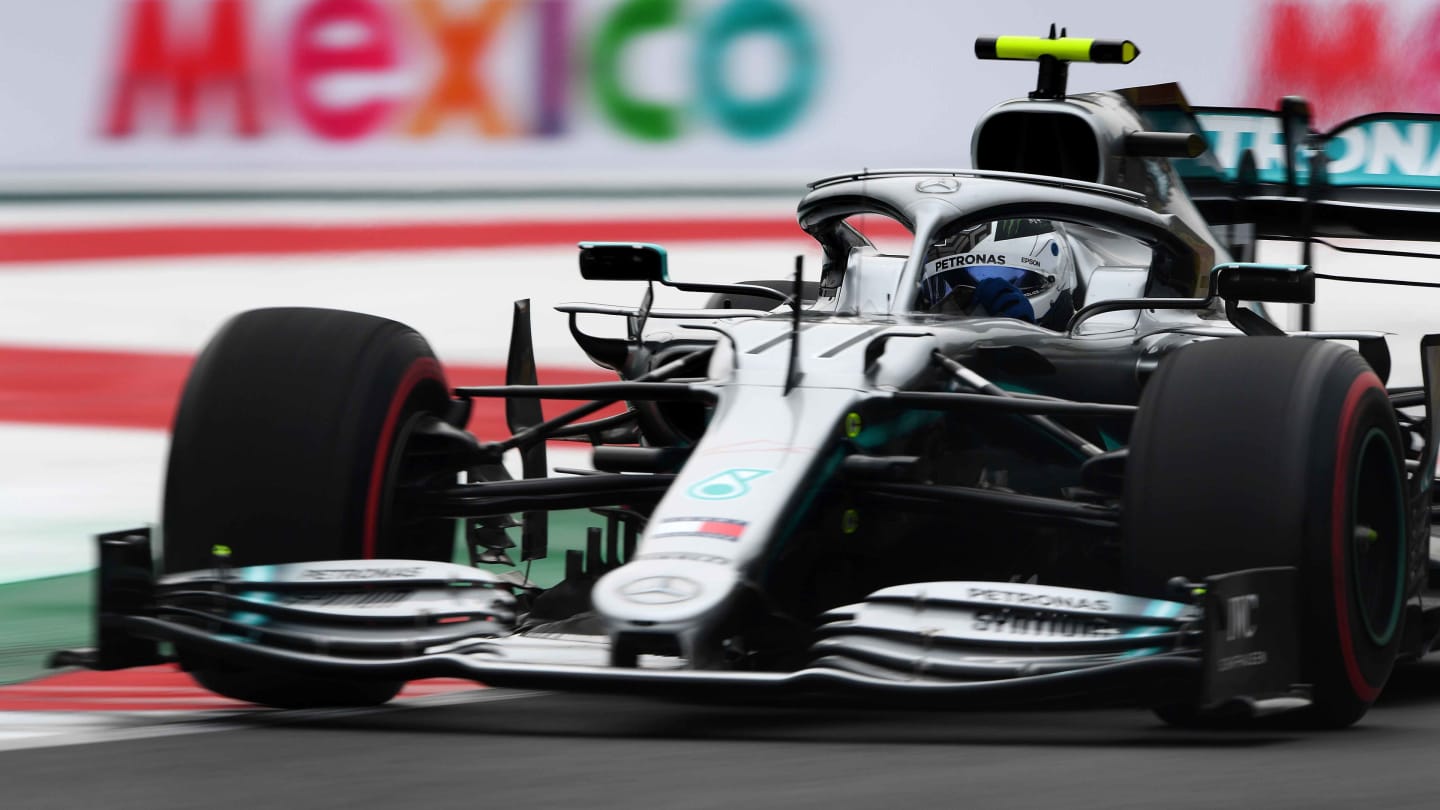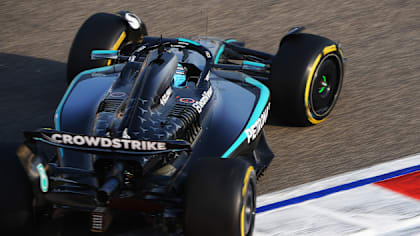
Feature
Trackside performance analysis: Watching the drivers through Mexico's sweeping esses
Share

For FP1 in Mexico, Mark Hughes witnessed the drivers take on the Turn 7-11 esses, where drivers test their car's balance in a tricky, winding sequence of corners in the run-up to the circuit's legendary stadium section...
The stadium section of the Autodromo Hermanos Rodriguez is preceded by two sequences of ess-bends (Turns 7 to 11) that are effectively one section of building-speed right-left sweeps, each turn progressively faster than the preceding one, rewarding a car that not only changes direction well but which retains its balance through the turn. To an extent, these are conflicting requirements.
READ MORE: Hamilton just 0.1s quicker than Leclerc and Verstappen in Mexico opener
In the early stages of the first Friday practice session, the surface was damp and gripless, most of the field initially opting for intermediate tyres. But even as the dampness lifted and everyone changed onto slicks, there was still precious little for the tyres to bite into.
On one of those early laps, Kimi Raikkonen’s Alfa Romeo got what looked to be a nice degree of rotation into Turn 10 but it turned out to be a little too much for the gripless surface as that nice turn-in built into a rear slide. Raikkonen immediately backed off and headed for the pitlane, better to let someone else grip-up the track with their tyres.

The first to really attack the sequence is Valtteri Bottas who takes huge speed into Turn 10, the Mercedes turning in well but giving a menacing little twitch on the exit and a bigger one as he turns into 11, requiring him to ride his right-hand wheels over the bumpy exit kerbs.
On the following lap, he pushed even harder and this time got wildly out of shape and needed a good old-fashioned dose of opposite lock to retrieve the situation. Lewis Hamilton took a few laps longer before pressing on and his car displayed the same twitchiness. The Mercedes’s grip is higher than that of any other car but it was not an easy drive at this stage of the session.
READ MORE: Hamilton looking to seal title number six without long-term race engineer
The Ferrari looked stable – perhaps a little too stable with its early-season understeer balance resurfacing. It takes longer to take a set into these turns than either the Mercedes or Red Bull which looked a little like the Mercedes but not quite as grippy, not quite as twitchy – although Alex Albon suffered a Bottas-like moment over the Turn 11 exit kerbs.
Mexico: Turns 7 through to 11 analysis
READ MORE: Why it's the air that poses the biggest challenge in Mexico
Moving back to the Turn 7-9 esses, the track grip built up nicely and after a red flag the field all came out together, ramping up the grip rapidly.
Suddenly, the Mercedes looked fantastic, floating through this sequence with beautiful fluidity and nailed-down grip. That building track grip seemed to have come to the aid of the balance, the drivers no longer needing as much initial lock and therefore not triggering a rear twitch as the fronts finally grip.
The Ferrari still looked a little unresponsive but another car responding well to the grip improvement was the McLaren. It’s got nowhere near the Mercedes’s – or even the Ferrari’s – grip, but it has a beautiful balance that Carlos Sainz was going with, confidence soaring.
But probably the most dramatic-looking car was the Renault. It’s very low grip but driveable and both Daniel Ricciardo and Nico Hulkenberg were wringing its neck, the rear widely out of line on the exits as the price for the good turn in.
There's no doubt, getting this sequence right is key to a good lap time in Mexico.
YOU MIGHT ALSO LIKE

Video WEEKEND WARM-UP: McLaren the favourites as intra-team rivalry hots up in Saudi Arabia with Ferrari, Red Bull and Mercedes all in the mix
Feature BETTING GUIDE: Who are the favourites as F1 heads to Saudi Arabia?
News Norris 'being forced to drive in a different way' as championship leader opens up on car struggles
Feature F1 FANTASY: Strategist Selection – What’s the best line-up for the Saudi Arabian Grand Prix?



